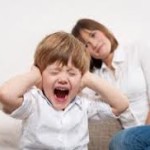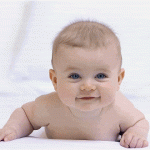
Due to unhealthy diets and living conditions hypertension is not only seen in adults but also in children. Children of every age can have blood pressure including newborns. According to Doc. Dr. Ilke Beyitler high blood pressure that can have serious effects on vital organs such as the brain, eyes, heart and kidneys is generally discovered during routine check-ups of children before they have shown any symptoms. This can cause symptoms such as sweating, restlessness, difficulty in feeding small children and panting.
Hypertension can develop without showing any symptoms in children. But simply, it can cause dizziness, headaches,cloudy vision, nosebleeds,red face,nausea, delayed development, vomiting, tiredness and short breath. Also pain in the legs after exercising and palpitation in older children.
Dr. Beyitler mentioned that if we search the reasons of high blood pressure we see the causes of it as follows, congenital or late occurring narrow arteries regarding the heart and vascular system, congenital or non-congenital kidney problems, problems with the arteries or venous blood vessels of the kidney, hormonal deficiencies due to the adrenal gland, thyroids and parathyroid glands, neurological problems such as stroke, brain tumour, infection or trauma, use of certain medication such as steroids, increase in total blood volume, increased sodium in the blood and stress.

The other reason of high blood pressure is obesity which is on the rise. Consumption of fatty foods with additives, sedentary lifestyle, habits that limit movements such as spending a long time on a computer and watching TV are the main causes of obesity. Inactivity and the habit of constantly eating in front of the television are factors that cause obesity at an early age. As a result, high blood pressure is becoming more commonly seen in these obese inactive children.
Emotional state changes such as exam stress or other stresses in daily life, sudden fear, excitement and joy can cause changes in the blood pressure. These are generally natural waves that do not harm the child. However, if a child has previously diagnosed hypertension, then their blood pressure will rise under such circumstances and can cause sudden upsetting complications. Hypertension can be present without showing any symptoms, so the blood pressure of children must be tested at every check-up.

As in adults, it is not possible to give a specific hypertension limit for children. The blood pressure measurements that are accepted as normal differ for each age group and gender. This is the reason of the blood pressure measured in babies or children must be evaluated by a specialist physician according to the normal blood pressure values of each age group.
Due to the fact that measuring the blood pressure correctly is very important, the procedure must performed by an experienced nurse or physician. Babies should be calm and not crying during the tests of high blood pressure.
The treatment of hypertension in children is more important than for adults because children have a longer life expectancy. The treatment of hypertension is generally started with one medicine. If the blood pressure is not brought under control, then a second or even a third medicine can be added to the treatment. The effecting mechanisms of the medicine must be different if more than one medicine is used. The causes of hypertension, the side effects of medicine and ease of use must all be considered in the choice of medication.
Bringing serious secondary hypertension under control for children is more difficult than controlling essential hypertension in adults and requires the use of a combination of more than one antihypertensive agents. In the case of tumour, surgically removing the tumour will also cure the hypertension. Angioplasty is conducted in the treatment of renovascular hypertension. The patients must be closely monitored for hypertension after an angioplasty because narrowness may sometimes reoccur.

Obesity in children will cause different health problems such as cholesterol that they will have to fight all their lives, diabetes and hypertension. Even if there is a familial genetic tendency, this problem can be avoided by controlling dietary habits. A healthy diet, regular exercise and low salt intake must become part of life style.
Finally, Beyitler concluded as it is important for the blood pressure of every child to be measured at least once a year with a suitable device and if their blood pressure is high, then the underlying cause must be found. For medical treatment to be effective, the medication prescribed by a doctor must be taken regularly until the blood pressure levels balance out. If hypertension is not treated early, it can effect vital organs such as the eyes, kidney and heart. It must not be forgotten that damage can be prevented with early diagnosis and treatment.










